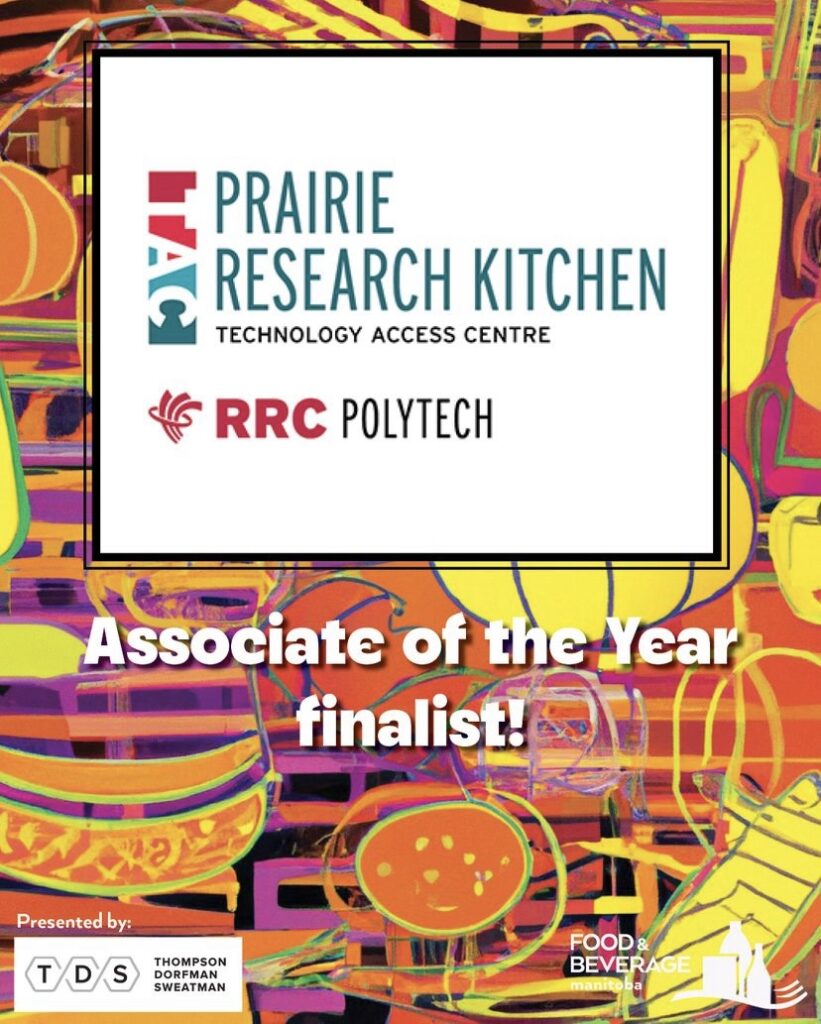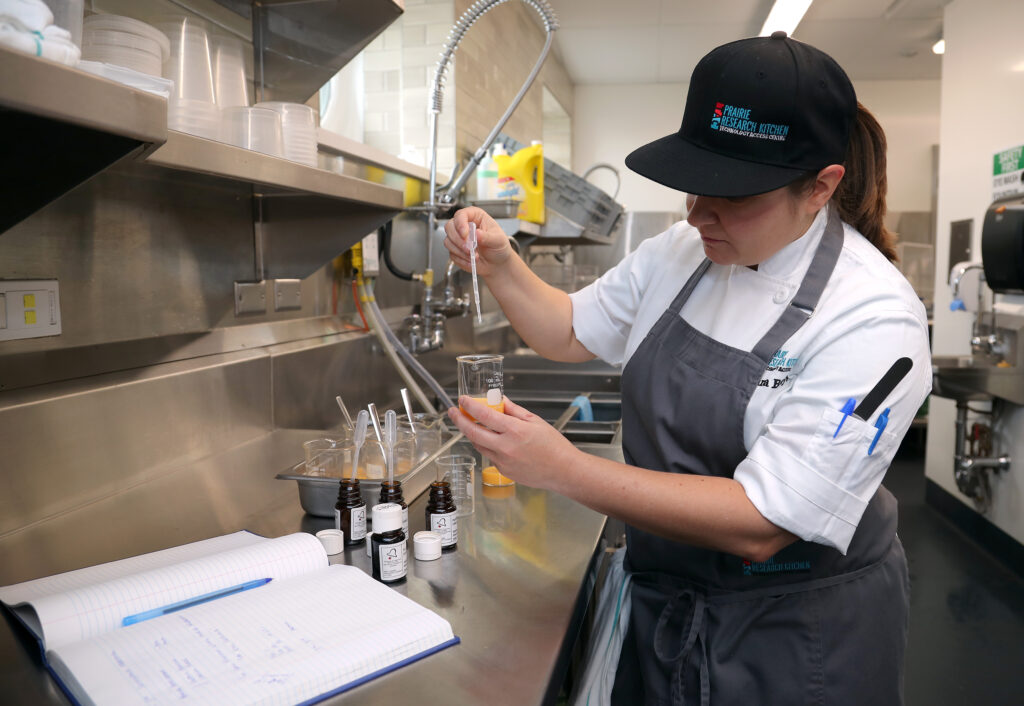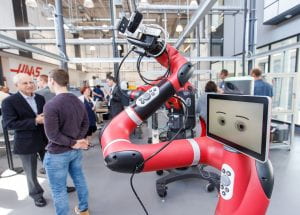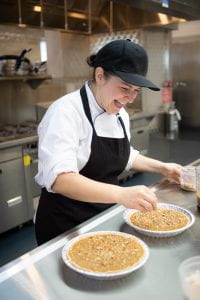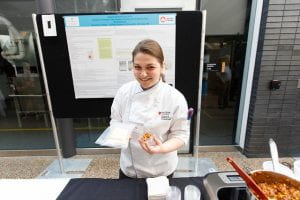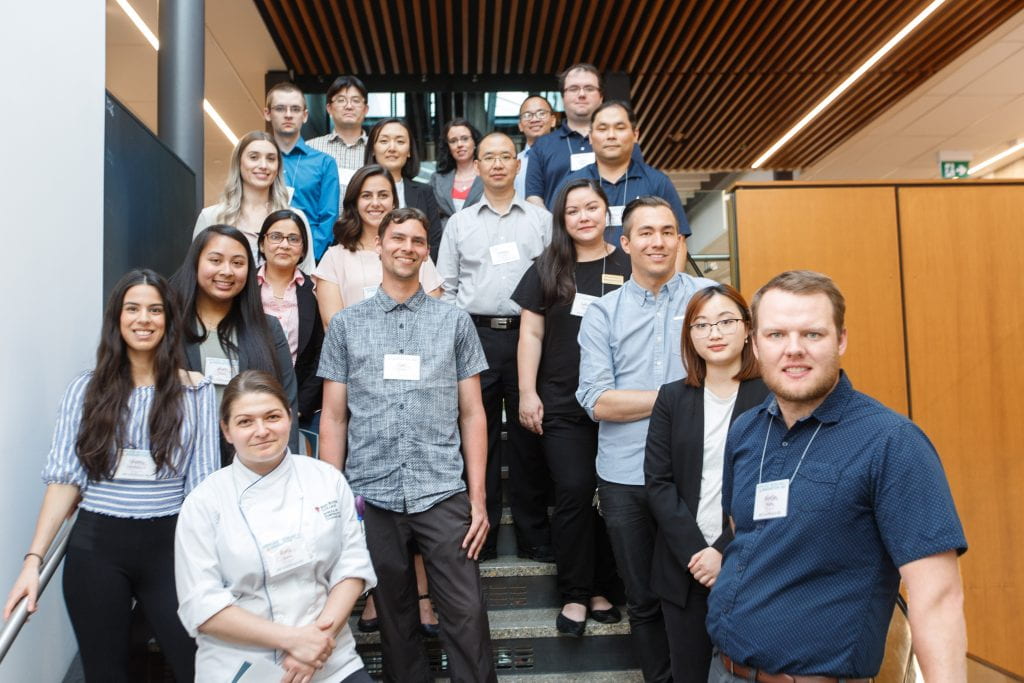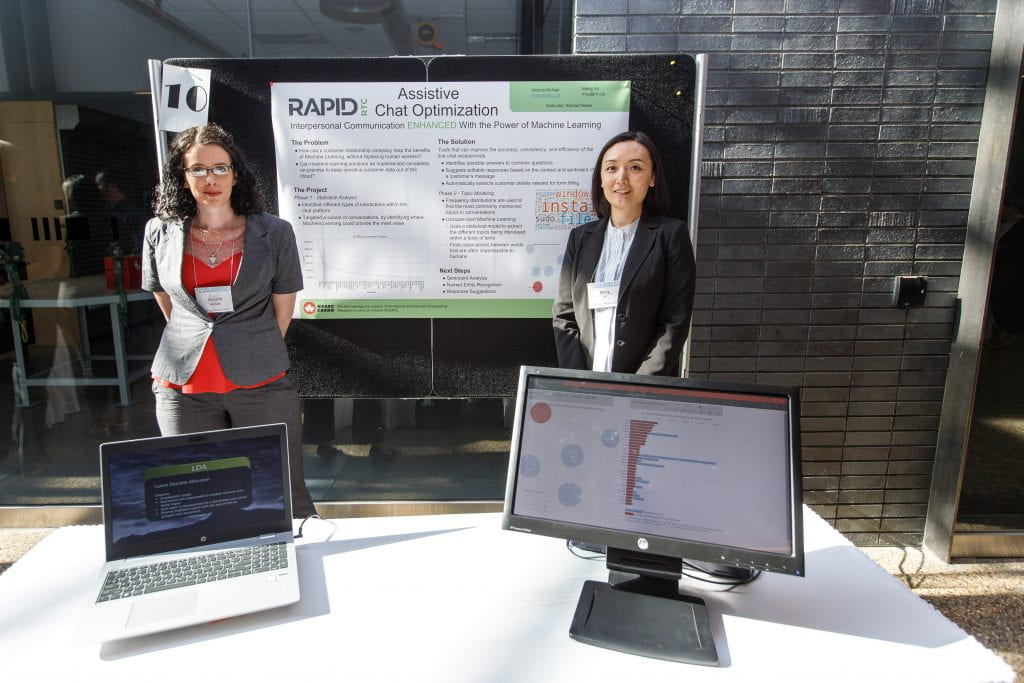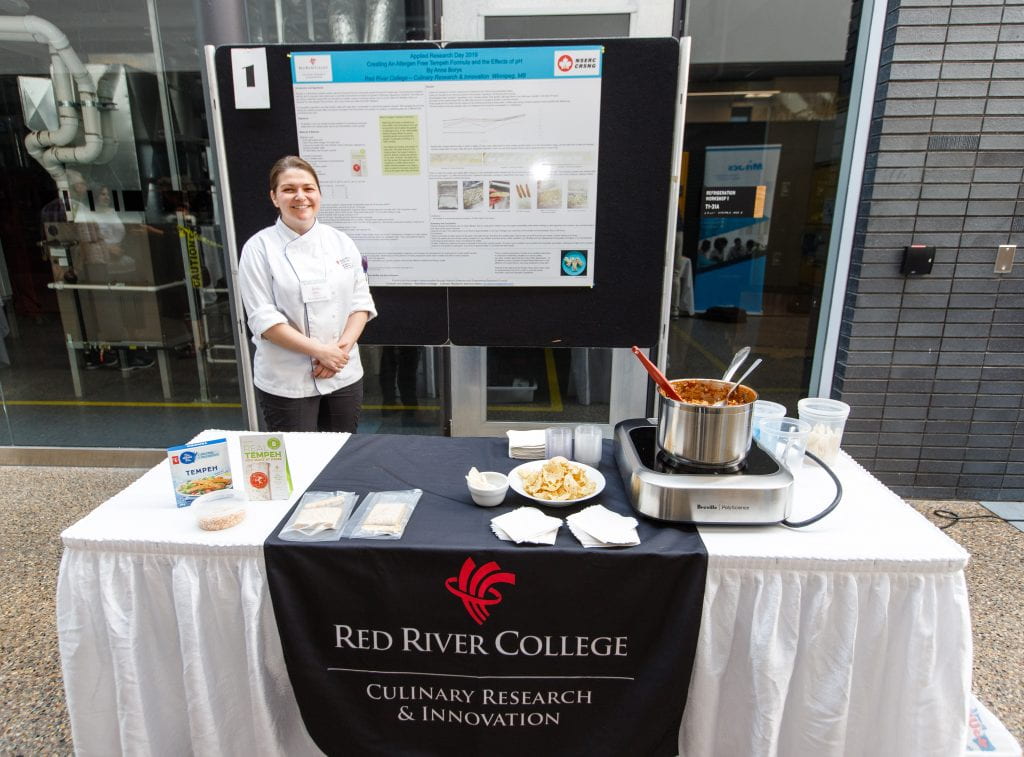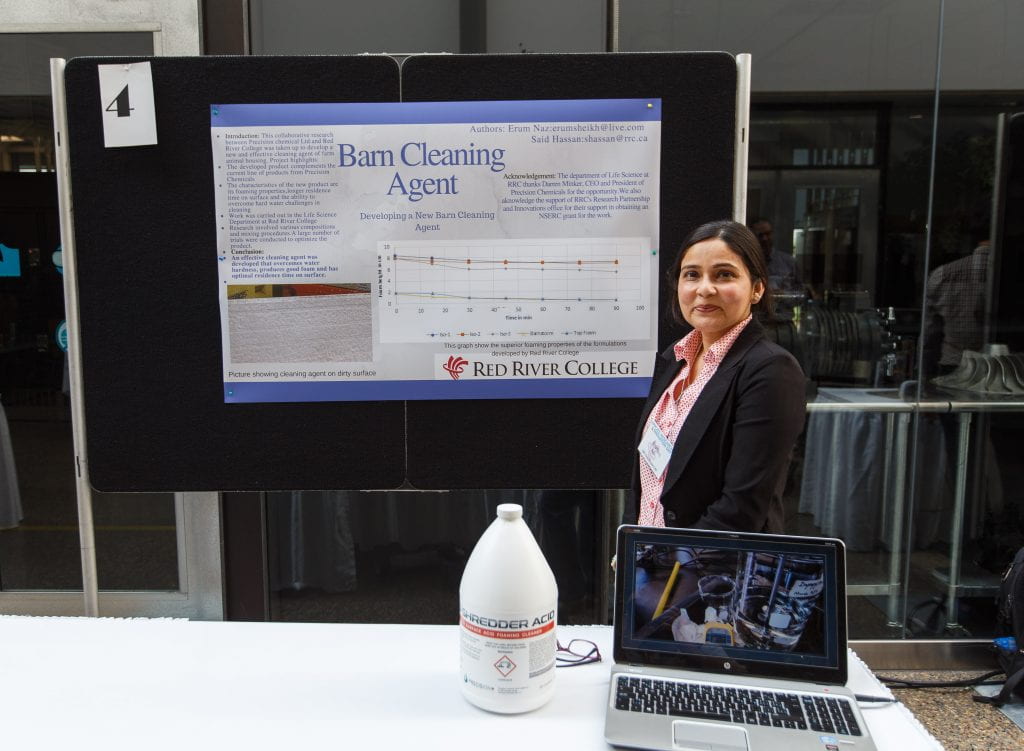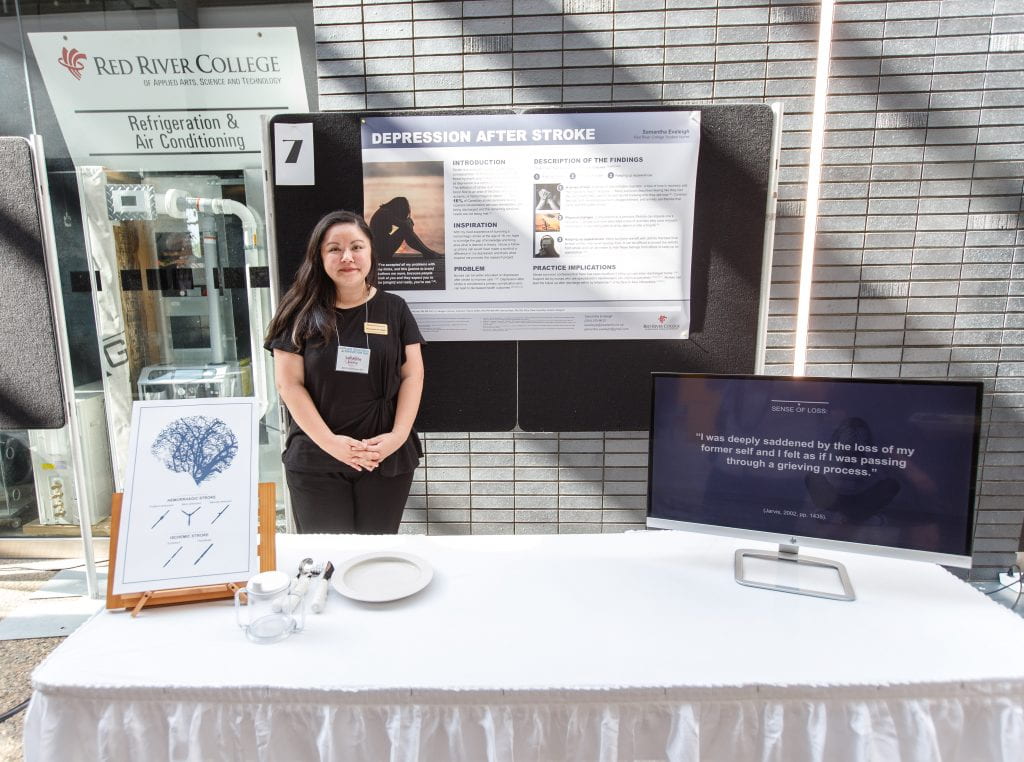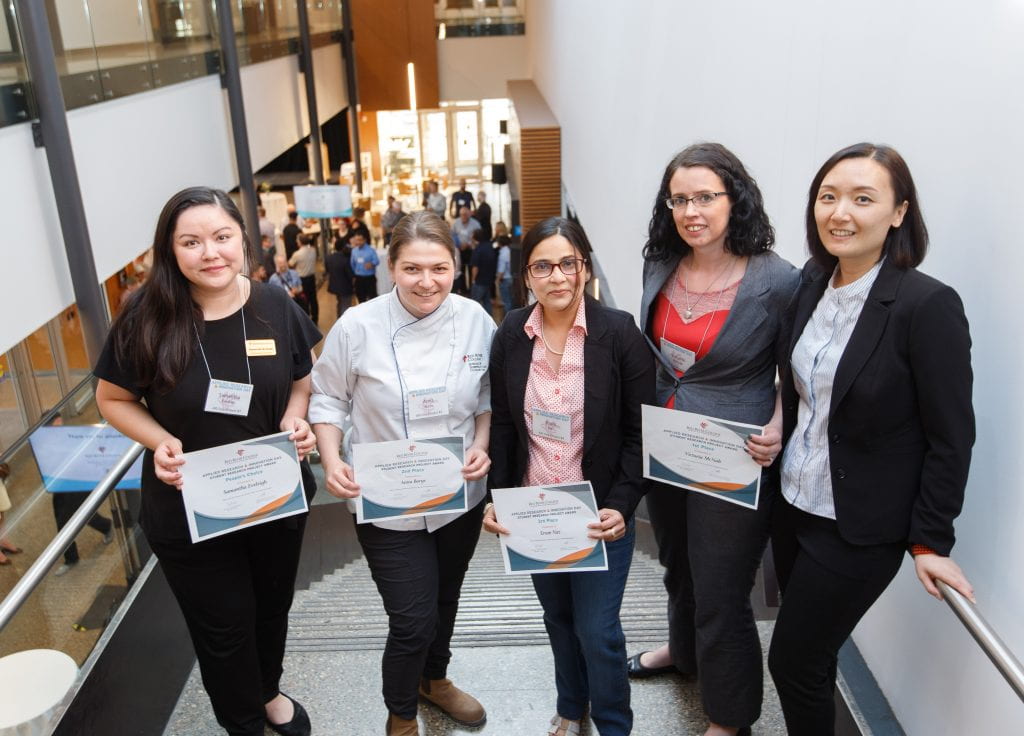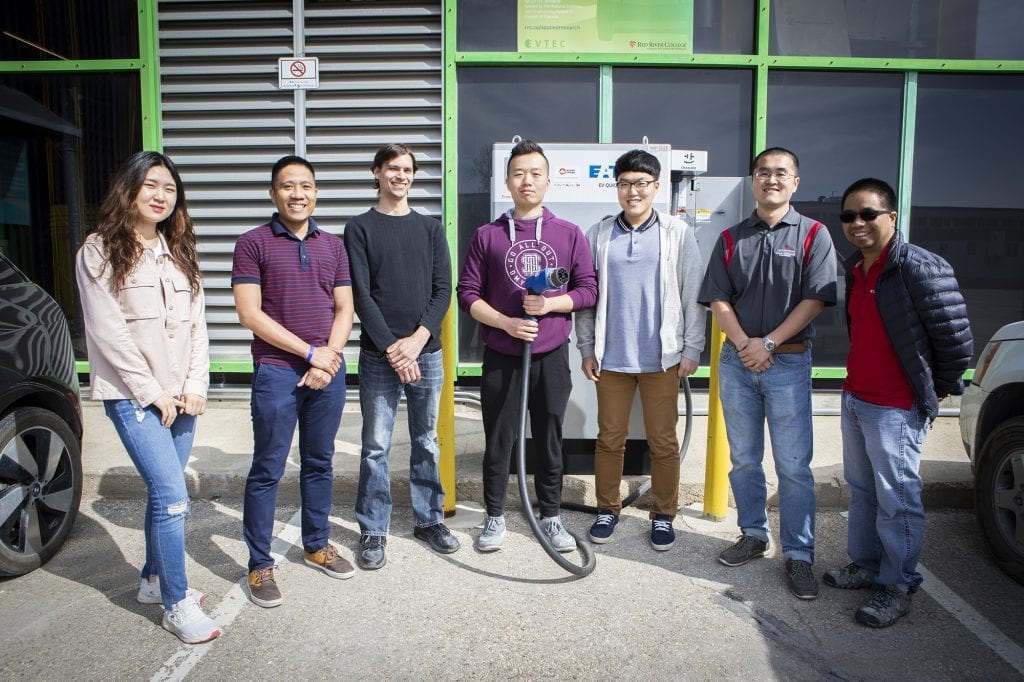RRC Polytech’s Prairie Research Kitchen named Associate of the Year by Food & Beverage Manitoba
The commitment that RRC Polytech’s Prairie Research Kitchen (PRK) makes to support Manitoba’s vibrant food production industry, provide unique learning experiences to students and give back to the community was recognized last week with a prestigious award. On Thursday evening, Food & Beverage Manitoba hosted its first Harvest Dinner and Awards Ceremony since the pandemic and named PRK its Associate of the Year, proudly sharing the honour with Sobey’s.
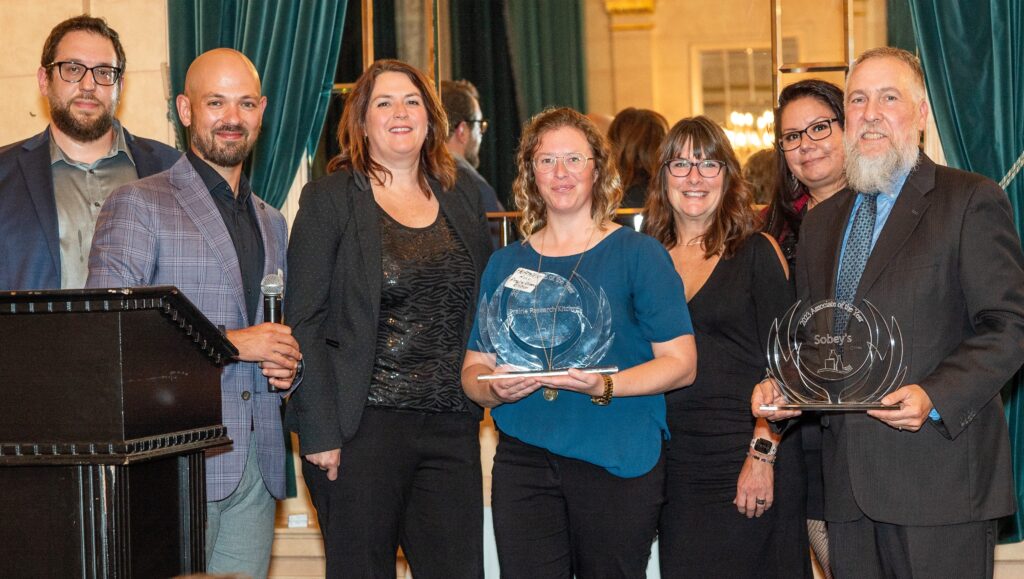
The winner of the Associate of the Year award consistently provides exceptional value to Food & Beverage Manitoba members. Using a unique blend of food science and culinary arts, PRK’s team of chefs, researchers and students work together tirelessly to develop creative solutions that support food processors and food service providers. As a Technology Access Centre (TAC) PRK supports businesses through:
- Applied research, including food prototyping, ingredient applications, food process modifications and consumer research trials.
- Technical services such as student recipe development, food photography, trade show support and clinical trial prototypes and products.
- Training on new ingredients as well as cooking or preservation methods emerging in the food and food service industries.
Since its inception in 2014, PRK has worked on over 120 projects with Manitoba and Western Canadian companies developing or refining their products for market and ensuring companies stretch their research dollars by accessing the eligible funding available for product development. PRK encourages companies to consider sustainability in all outputs of their operation – and by working with their clients to upcycle leftover ingredients, PRK has redirected over 500 kg of food to Winnipeg’s most vulnerable through Main Street Project over the past two years.
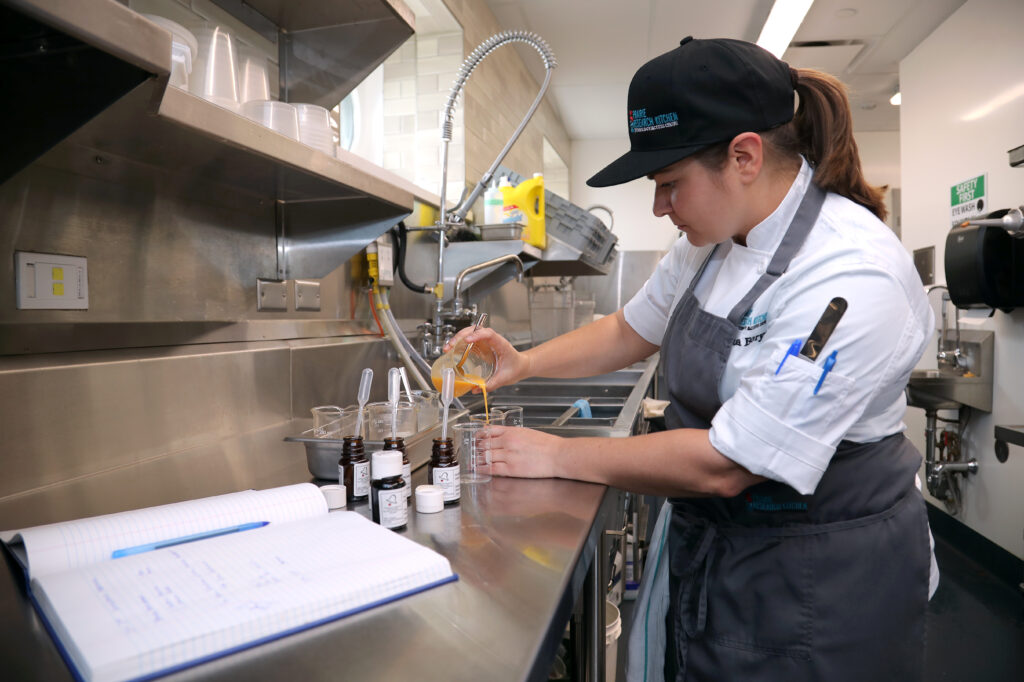
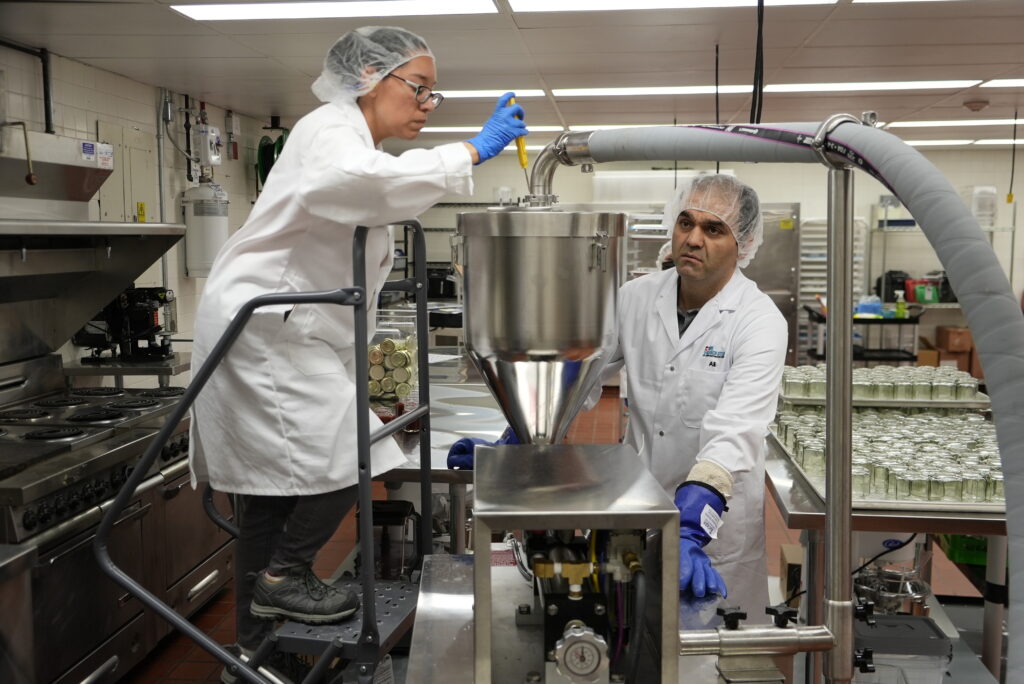
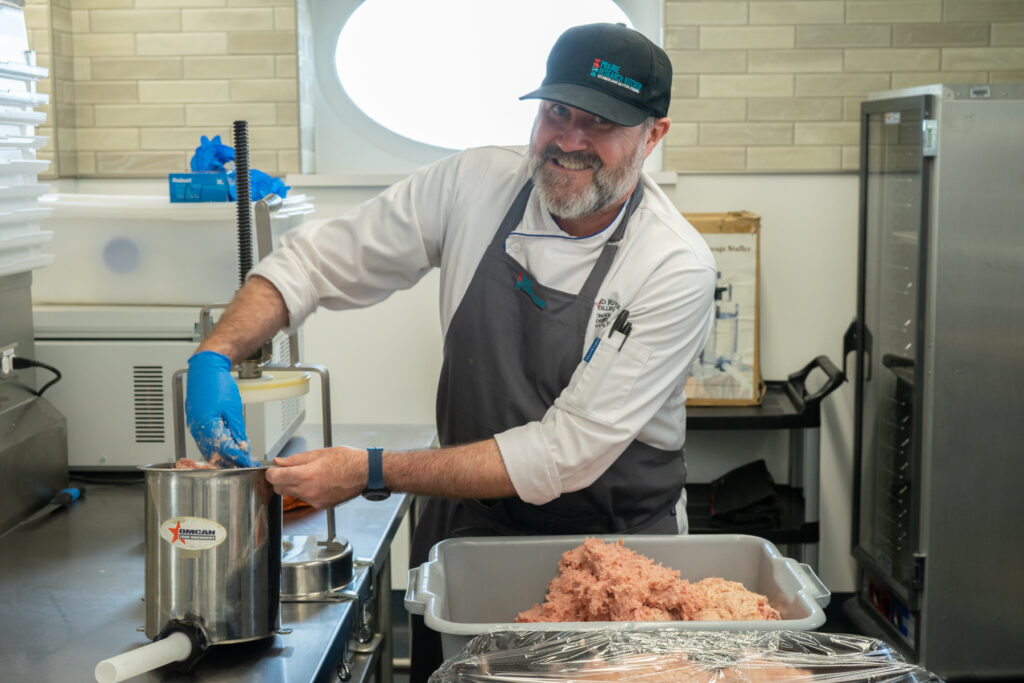
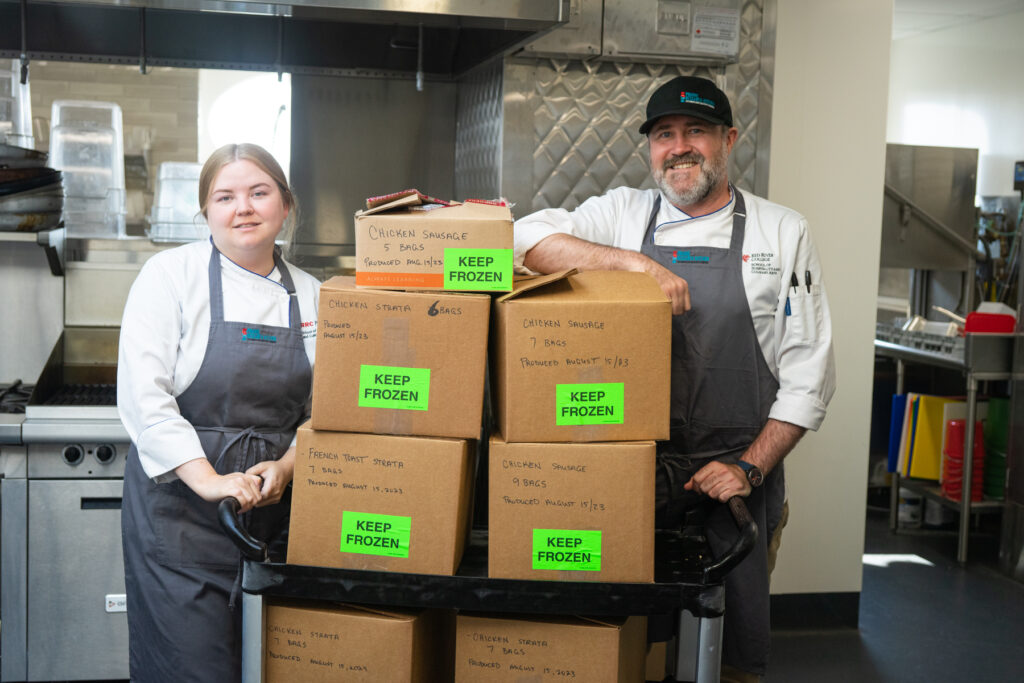
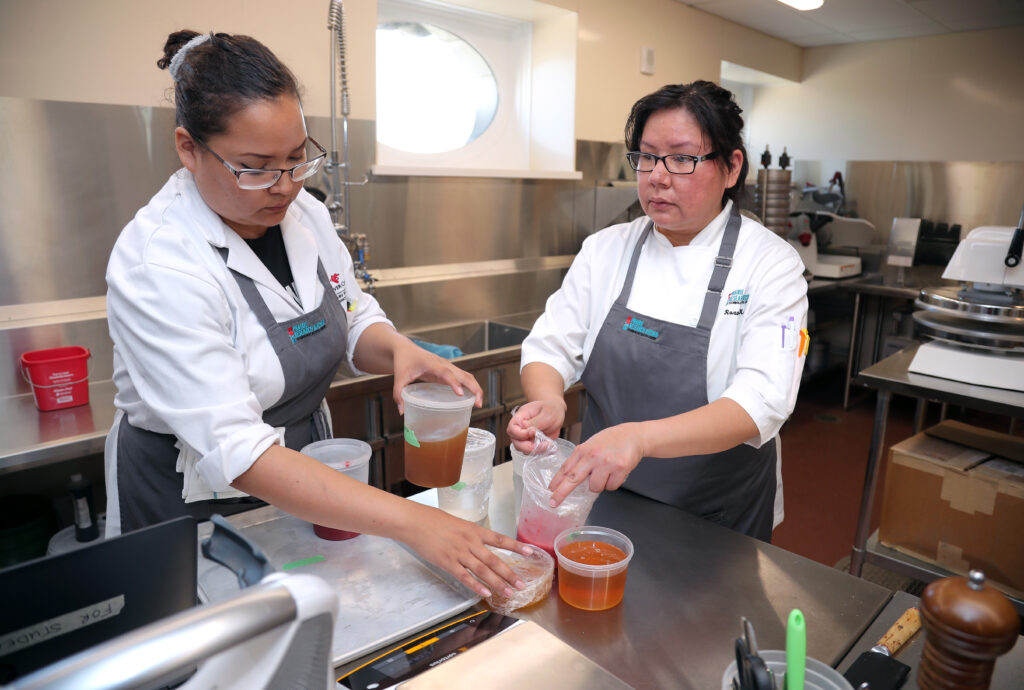
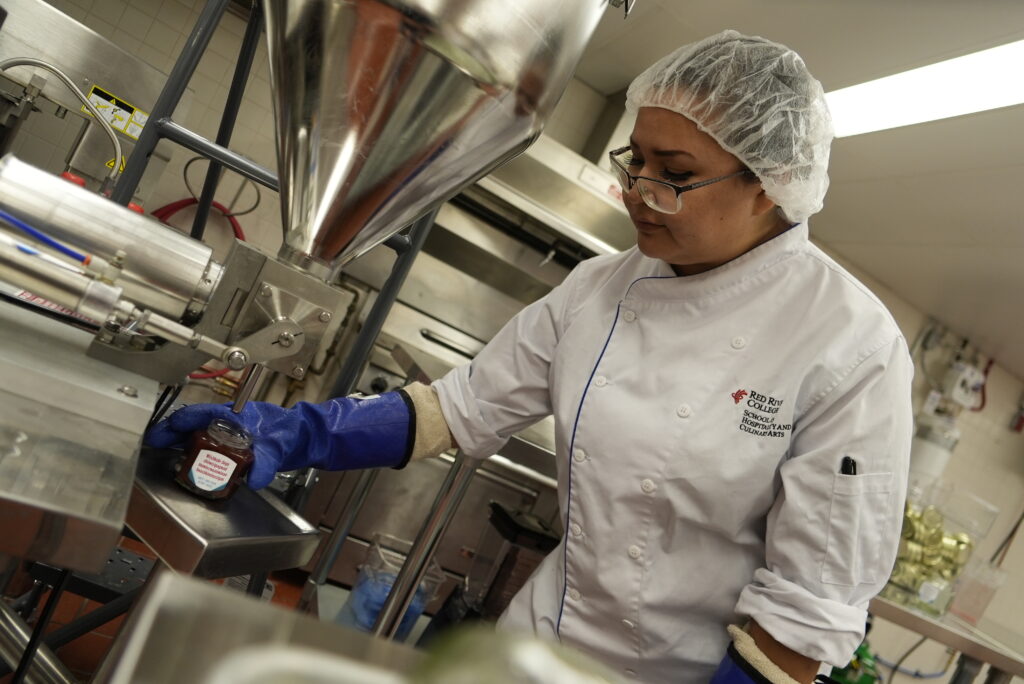
In addition to training the province’s future food product developers, operators, scientists, chefs, and bakers; developing an Introduction to Research program for students studying Culinary Skills through the School of Indigenous Education; and participating in numerous events, tours and outreach events; PRK team members also made time to sit on various student and industry panels, committees and advisory boards to help shape the future of the sector.
Congratulations to the multi-disciplinary team at Prairie Research Kitchen for building strong relationships with industry, helping great food products and ideas reach the tables of consumers, and playing a role in creating jobs and economic benefit for all Manitobans.
About Food & Beverage Manitoba
Food & Beverage Manitoba (formerly the Manitoba Food Processors Association) is an industry-led, not-for-profit association launched in 1993 to help the province’s food and beverage industry achieve its full creative and competitive potential. Its mission is to provide members with services and resources that help them navigate opportunities and challenges so they can elevate and strengthen their businesses.

